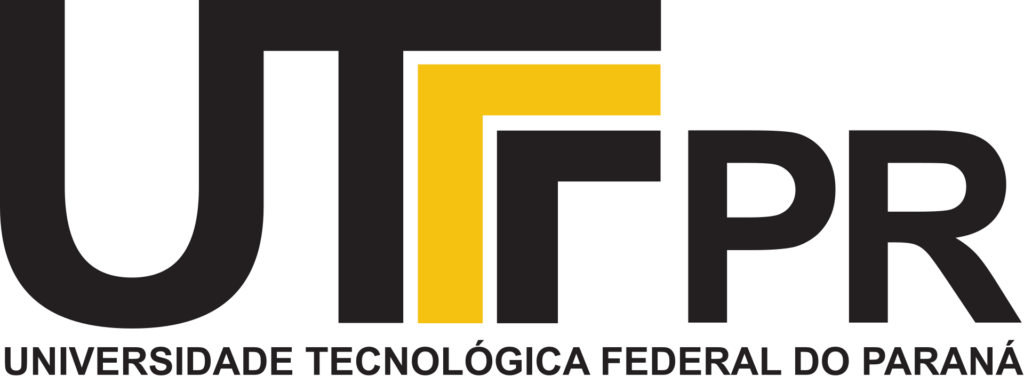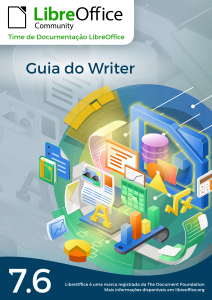Interview with Newly Certified LibreOffice Developer Rafael Lima

The LibreOffice Engineering Steering Committee (ESC) has appointed Prof. Rafael Henrique Palma Lima, from Federal Technological University of Paraná (UTFPr) as the newest certified LibreOffice developer.
Prof. Lima has been contributing new code to LibreOffice since 2020, and the committee has attested to the quality and value of his contributions to LibreOffice for this certification. We interviewed Prof. Lima, who tells us about the process and what areas of the code he works on.
Q: Professor, tell us how did you came into contact with LibreOffice and the Brazilian community?
Prof. Lima: As I have been a Linux user for a long time, I have always used LibreOffice as my office suite to prepare classes and study materials. In fact, I have been a user since the days of OpenOffice.org, and later of BrOffice.org. At that time, I had no idea that it would be possible to become a contributor to such an important project.
I first got involved with the international LibreOffice Documentation team, coordinated by Olivier Hallot. At the time, I had no idea how big the LibreOffice community was in Brazil, and it was he who introduced me to the Brazilian community and guided me on how to contribute to the project.
Q: What motivated you to participate in its development?
As a LibreOffice user, there were many things that I believed could be improved or fixed in the software. And since LibreOffice is free software, I started studying the code and making small bug fixes in the software.
More specifically, since I teach Operations Research for the Production Engineering course, I always had problems with the fact that the Calc solver was not able to save the settings in the file. So I made it one of my goals as a contributor: to implement this functionality of saving the solver settings in the file itself, as this would make it possible to use Calc in my Operations Research classes.
Q: How do you interact with the Brazilian LibreOffice community?
The Brazilian community is very engaged, especially in the area of documentation and translation of guides. We have a group on Telegram and we hold weekly meetings, every Wednesday night, to discuss general topics about LibreOffice, plan documentation actions, and as good Brazilians we also like to chat about various topics related to LibreOffice. I can say that we have a great friendship within the group.

Q: Has your university shown interest in LibreOffice?
The university where I work, UTFPR, has LibreOffice installed on all of its computers. The fact that it is free and open source software ensures that all computers have access to quality office tools, capable of opening the main file formats, without the need to pay for licenses and be tied to a proprietary ecosystem.
Despite this, the university still does not have a culture of contributing to free software projects. I believe that my participation as a member of The Document Foundation, as well as my visits to LibreOffice Conferences, have helped to show the other side of free software within the university: the side in which we contribute to developing and improving the tools we use.

Q: Do you think LibreOffice has value in academia? In administration? In the classroom and laboratory? What professional value does LibreOffice offer to students?
In my opinion, LibreOffice is the ideal tool for academia. In addition to having features that meet teaching and research use cases, LibreOffice is open source software and can be studied in Computer Science and Technology courses.
For university administration work, LibreOffice offers all the necessary features. However, we still use many templates created in other tools, especially Microsoft Office, which creates some compatibility issues. If all these templates were created directly in the open ODF format, all university office work could run with LibreOffice.
Q: What is it like to be part of the international LibreOffice community?
Being part of the international LibreOffice community is a unique experience. There are people from all over the world, with different backgrounds, which enriches the discussions.
Collaboration is the most interesting part. I make several patches (code implementations) that are evaluated by other more experienced developers. I also get involved in several discussions in our Telegram groups and in bugs reported by users on Bugzilla. Although some discussions can get heated, we always try to find solutions that will most benefit the LibreOffice project.
Q: Did developers from other countries help you work on the code or did you have to figure things out on your own?
The developers are very friendly and helpful with guidance, especially during patch reviews. But there is still a lot that I have to figure out on my own. Each new implementation is a new adventure, with its own path of discovery. Since LibreOffice is an old project, there are many parts that contain old code and to understand it you need help from more experienced developers.
Q: What requirements are needed to participate in the development of LibreOffice code?
The core code of LibreOffice is written in C++, so you need to have a good knowledge of this programming language. But above all, you need to be resilient, because at first the LibreOffice code can seem huge and it is difficult to understand how things connect. To make this easier to understand, I recommend reading the initial chapters of the LibreOffice Developer’s Guide to understand the main concepts of the Uno API.
Q: How was the certification process?
The certification process is based on implementations submitted by the developer over time, demonstrating suitability for certification. In recent years I have developed new features that are more complex and cover more parts of LibreOffice, which I believe helped me achieve certification.

Q: In addition to being a certified developer, you are also a member of The Document Foundation (TDF). Has TDF helped you in any way throughout the process? What advantages do you see in being a TDF member and now certified?
The Document Foundation is a foundation that I am proud to be a member of. Through TDF, I have developed relationships that have helped me throughout this learning and certification process. With funding from TDF, I was able to participate in person in the last two editions of the LibreOffice Conference, where I was able to gain a lot of knowledge and discuss development ideas with other TDF members.
Q: What projects in LibreOffice are you involved in? Can you give a brief summary?
Recently my focus has been on developing new features in Calc and Basic. I am also part of the development team for the ScriptForge library, which aims to facilitate the creation of macros in Basic and Python. In addition, I participate in discussions with the LibreOffice Design group and the Brazilian Documentation team. I also recently supervised a GSoC (Google Summer of Code) project and will now be supervising a new project in the Outreachy program.
Q: What advice would you give to those interested in participating in the development of LibreOffice?
I believe that there are many people who are interested in contributing to LibreOffice, but don’t know where to start. Since LibreOffice is a very large project, some people may be intimidated at first. But the important thing is to start somewhere. For example, new contributors can start in the documentation, quality assurance (QA), and design teams and later move on to other areas. If you are interested in becoming a developer, then the ideal is to search for easyhacks on Bugzilla or create unit tests for bugs that have already been fixed.
I also recommend keeping in mind that the path may be a bit long, but it is a very rewarding path.
Congratulations to Prof. Lima for the certification and a big thank you for your contributions to LibreOffice, making it more special every day for the Brazilian and global public in general.
